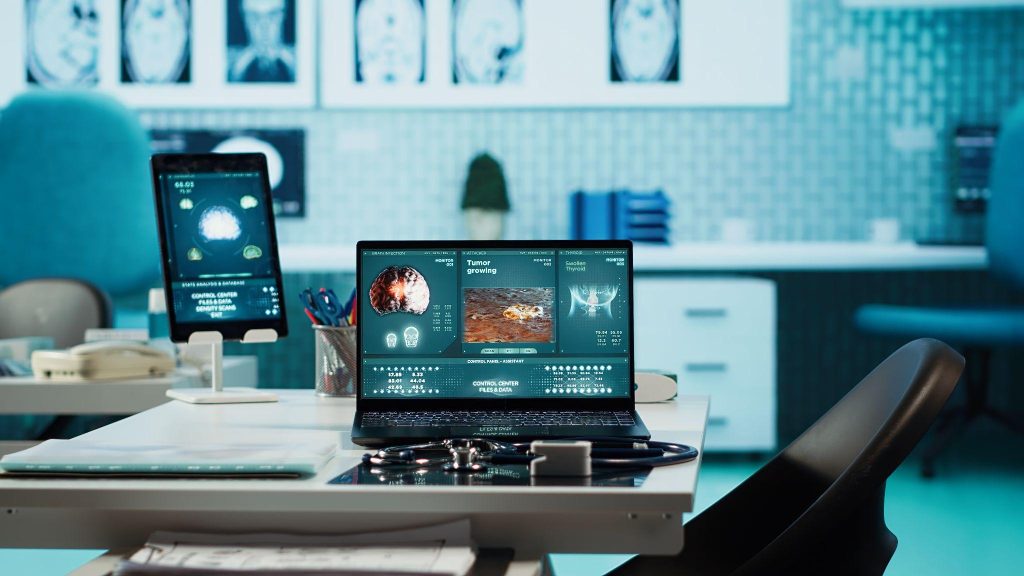
The Healthcare Industry is growing on a full scale with advancements in every part of the industry, from patient appointment, consultation, to patient monitoring, pharmacy, and billing, everything is being modernized with advanced digital solutions. Digital tools and technologies, including mobile apps and enterprise software systems, are changing the way how healthcare industry has been working for so long is now moving with multiple digital solutions.
The Rise of Mobile Healthcare Applications
Healthcare applications are now gaining prominence as indispensable resources for patients and practitioners. On the patient side, mobile applications facilitate scheduling, setting medication reminders, tracking physical activity, and even virtual visits for healthcare consultations. All of which support an individual approach to managing their health and a more proactive approach to engaging in health-based activities.
From the healthcare or practitioner side, applications create real-time monitoring of patient conditions and offer valuable data for early diagnosis. For example, apps associated with wearable devices can track heart rate, glucose levels, or sleep quality and notify the clinician with relevant data if symptoms or experiences trigger specific considerations before they lead to an emergency.
Software as the Foundation of Modern Healthcare Systems
Although applications have allowed for a more direct patient engagement, health information technology is still the rallying point of any medical organization. The technological components of electronic health records and clinical management software have enabled hospitals to document, coordinate, and share information between different departments of a medical facility. This minimizes the chance of the patient being brought into an incorrect diagnostic pattern or receiving inappropriate treatment.
Furthermore, powerful healthcare software platforms contribute to hospitals being able to detect patterns in population health, estimate the likelihood of outbreaks of diseases, and distribute and prioritize the utilization of resources appropriately. This capacity to predict is changing applications from an administrative necessity to software that, ultimately, can be used for strategic planning in health systems.
Key Benefits for Patients and Providers
Digital health technologies bring in tons of benefits to both patients and health care professionals, resulting in the best healthcare solutions ever. Patients have improved access to health care in their own hands, with a variety of digital applications providing health services. Patients who can be monitored outside of a clinical facility, for instance, can prevent or lessen the frequency of seeing their clinician, particularly relevant for patients with chronic disease states that need ongoing monitoring to be managed proactively.
For the health care professional, the digital system can continue to lessen the administrative burden and perhaps improve the trustworthiness of reported outcomes. Automation and decision support systems help provide clinicians with time to spend with patients – for the clinician, that is an improvement in efficiency that trickles down and has the potential to improve patient outcomes throughout the continuum of care and a genuine partnership between nurses and patients.
Barriers to Widespread Adoption
While there are benefits, challenges exist for the utilization of healthcare technology. The most significant challenge is interoperability, which is the ability for systems to communicate. Most healthcare organizations use multiple software platforms, and they are not integrated, creating an environment of information silos.
Data security and privacy are also significant concerns. Healthcare data is sensitive, and breaches could be severe. For example, HIPAA legally requires compliance; organizations must continue to pay for security to address current threats and adapt to the wave of new cybersecurity issues.
Emerging Trends in Digital Health
Artificial intelligence and machine learning are further instilling and embedding themselves within the healthcare sector, solving many issues. AI algorithms can assess diagnostic images, monitor disease progression, and individualize treatment. The data generated will create an atmosphere for more personalized and precise healthcare, in addition to achieving the perfect diagnosis.
Telemedicine is also a routine option for patients to engage with a clinician without the constraint of physical location. Through intuitive and consumer technology, telehealth has emerged as a leading component of a modern standard of care, along with mobile health applications and other connected devices.
The Road Ahead
The healthcare landscape is heading toward an integrated digital ecosystem with an abundance of apps, software, AI agents, and numerous other connected devices to decrease the time and money for patients. All the new digital healthcare solutions will decrease the cost of every treatment while providing advancements in innovation, patient engagement, and data-driven medicine. Healthcare organizations need to and will invest in sustainable, secure, scalable, and interoperable solutions.
Realizing the potential of Healthcare software and the importance of a trusted Healthcare app Development company will help create sustainable digital healthcare ecosystems that will benefit patients and providers alike.